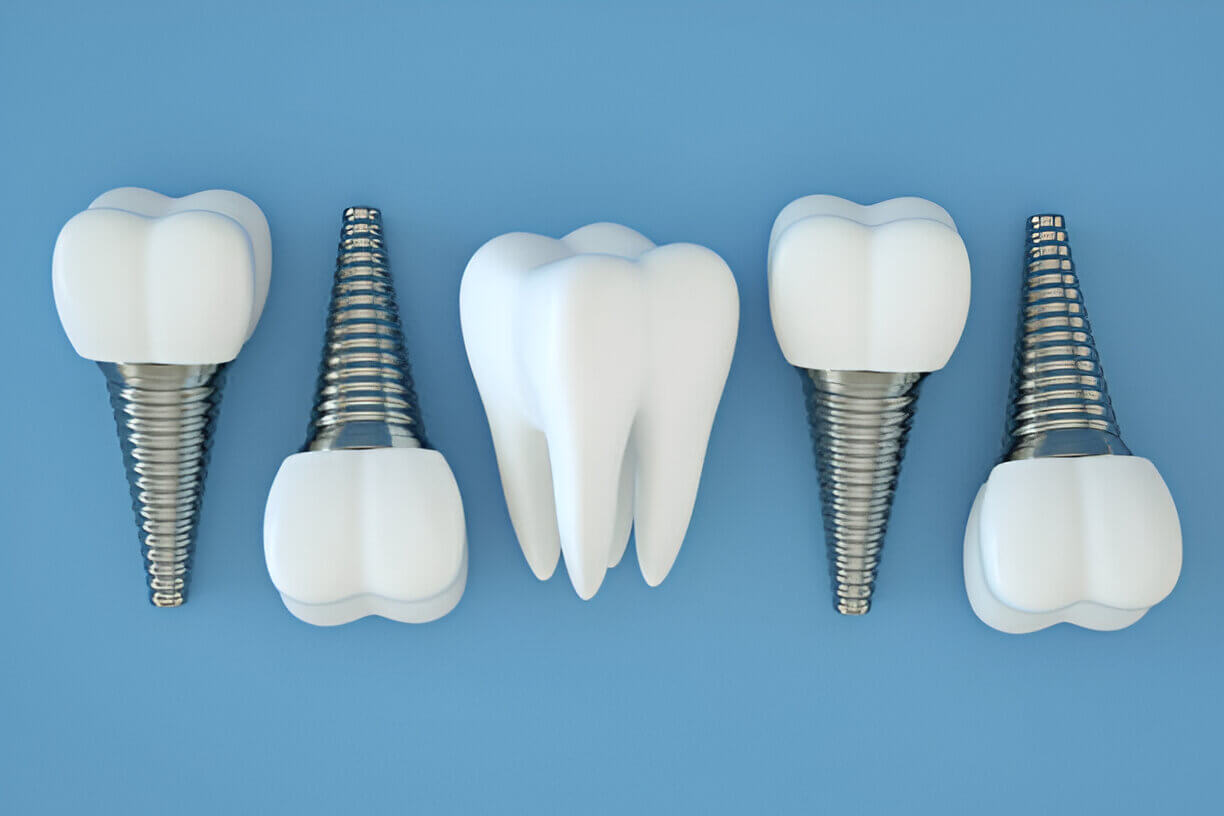Dental implants can significantly enhance your quality of life by replacing missing teeth, but the cost can be prohibitive. Many people are unsure if dental insurance covers implants and how to navigate the insurance landscape to get the best coverage. This comprehensive guide will help you understand how to get dental implants covered by medical insurance, including which dental insurance covers implants and finding the best dental insurance for implants.
Understanding Dental Implants
Before diving into insurance details, it’s essential to understand what dental implants are and why they can be expensive. A dental implant is a surgical component that interfaces with the jawbone to support a dental prosthesis such as a crown, bridge, or denture. The process involves multiple steps, including an initial consultation, implant placement, healing period, and prosthesis attachment. Each stage requires professional expertise and materials, contributing to the overall cost.
Dental Insurance That Covers Implants
Not all dental insurance plans cover dental implants, as they are often considered a cosmetic procedure. However, some plans do provide coverage, especially if the implants are deemed medically necessary. Here are a few steps to determine if your dental insurance covers implants:
- Review Your Policy: Start by carefully reading your dental insurance policy. Look for sections related to major restorative services and implants.
- Contact Your Insurance Provider: Speak directly with your insurance provider to get clarification on implant coverage. Ask about the specific conditions under which implants are covered.
- Check for Medical Necessity: Some insurance plans cover implants if they are medically necessary. For instance, you may have a higher chance of coverage if implants are needed due to a medical condition or accident.

Which Dental Insurance Covers Implants?
Finding the right dental insurance that covers implants can be challenging. Here are some tips to help you identify suitable plans:
- Look for Comprehensive Plans: Insurance plans that offer comprehensive coverage for major restorative procedures are more likely to cover implants. Look for plans that explicitly mention coverage for implants.
- Consider Standalone Implant Insurance: Some insurance companies offer standalone dental implant insurance or riders that can be added to your existing plan for an additional fee.
- Employer-Sponsored Plans: If you have insurance through your employer, check if your plan includes dental implants. Employer-sponsored plans often offer more extensive coverage than individual plans.
Best Dental Insurance for Implants
Choosing the best dental insurance for implants involves comparing different plans and understanding their coverage limits. Here are a few top options known for providing good implant coverage:
- Delta Dental: Delta Dental offers various plans, some of which include coverage for implants. Their PPO plans, in particular, are known for comprehensive coverage.
- Cigna Dental: Cigna provides several dental plans that cover implants, especially when they are medically necessary. Their DHMO plans are also a good option.
- Aetna Dental: Aetna’s PPO and indemnity plans often include coverage for implants. They also offer a Dental Direct plan that can be tailored to include implant coverage.
Steps to Get Dental Implants Covered by Insurance
Here’s a step-by-step guide to help you navigate the process of getting dental implants covered by your insurance:
- Obtain a Detailed Treatment Plan: Your dentist should provide a comprehensive treatment plan outlining the procedure, costs, and medical necessity.
- Submit Pre-Authorization: Submit a pre-authorization request to your insurance provider along with the treatment plan. This will help you understand what portion of the cost will be covered.
- Provide Supporting Documentation: If your implants are medically necessary, provide documentation from your healthcare provider explaining the necessity.
- Follow-up: Keep in touch with your insurance provider throughout the process to ensure your request is being processed.
- Appeal if Denied: If your claim is denied, don’t hesitate to appeal. Provide additional documentation and clarification if needed.
Additional Tips for Reducing Implant Costs
Even with insurance, dental implants can be costly. Here are some additional tips to help reduce out-of-pocket expense:
- Flexible Spending Accounts (FSAs) and Health Savings Accounts (HSAs): Use pre-tax dollars from your FSA or HSA to pay for implants.
- Dental Schools: Consider getting treatment at a dental school where supervised students perform the procedures at a lower cost.
- Payment Plans: Many dental offices offer payment plans or financing options to spread the cost over time.
- Shop Around: Get quotes from multiple dental providers to find the best price without compromising quality.
Ainsurance 4 U: Your Partner in Dental Implant Coverage
Navigating dental insurance can be complex, but with the right information and support, you can make informed decisions. Ainsurance 4 U specializes in helping clients find the best dental insurance plans, including those that cover dental implants. Our team is dedicated to providing comprehensive guidance to ensure you receive the coverage you need for a healthier, happier smile.
Conclusion
Getting dental implants covered by medical insurance requires research and persistence. Start by understanding your current insurance policy, exploring different plans that offer implant coverage, and working closely with your dentist and insurance provider. By following the steps outlined in this guide, you can improve your chances of securing coverage for your dental implants and reduce the financial burden associated with this valuable dental procedure.

